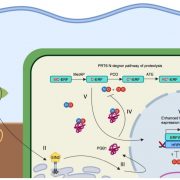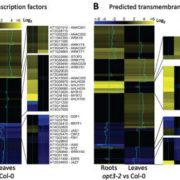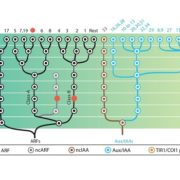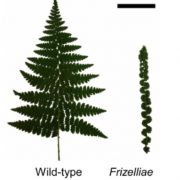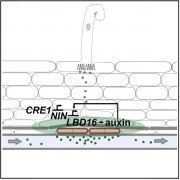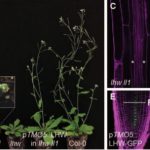Pinstatic acid promoters auxin transport by inhibiting PIN internalization (Plant Physiol)
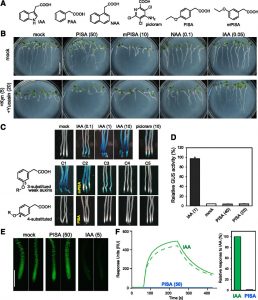 Auxin transport regulated by directional transporters such as PIN (PIN-FORMED) proteins ensures maintenance of proper auxin levels for growth and development. Plants modulate auxin flow by regulating the localization of PIN through exocytosis and endocytosis allowing recycling of PIN protein within a cell. In search of modulators of PIN internalization during such regulation, Oochi et al. have identified ethoxyphenylacetic acid (PISA/Pinstatic acid). The major characteristic of PISA includes its inability to participate in the canonical auxin signaling pathway via the SCFTIR1/AFB complex, therefore it is unable to induce the auxin responsive marker DR5. When assayed for auxin-related developmental phenotypes, PISA showed auxin-like effects including on root elongation. In comparison to known transport inhibitors of auxin, PISA exhibited positive effect on shootward IAA flow in the root. PISA-mediated PIN internalization causes an increase in auxin efflux and subsequent phenotypes. Dissection of a detailed mechanism of this transport modulator will help understand the regulation of auxin flow. (Summary by Suresh Damodaran) Plant Physiol. 10.1104/pp.19.00201
Auxin transport regulated by directional transporters such as PIN (PIN-FORMED) proteins ensures maintenance of proper auxin levels for growth and development. Plants modulate auxin flow by regulating the localization of PIN through exocytosis and endocytosis allowing recycling of PIN protein within a cell. In search of modulators of PIN internalization during such regulation, Oochi et al. have identified ethoxyphenylacetic acid (PISA/Pinstatic acid). The major characteristic of PISA includes its inability to participate in the canonical auxin signaling pathway via the SCFTIR1/AFB complex, therefore it is unable to induce the auxin responsive marker DR5. When assayed for auxin-related developmental phenotypes, PISA showed auxin-like effects including on root elongation. In comparison to known transport inhibitors of auxin, PISA exhibited positive effect on shootward IAA flow in the root. PISA-mediated PIN internalization causes an increase in auxin efflux and subsequent phenotypes. Dissection of a detailed mechanism of this transport modulator will help understand the regulation of auxin flow. (Summary by Suresh Damodaran) Plant Physiol. 10.1104/pp.19.00201


